- ENQA
- WFME
- APQN
- INQAAHE
- IREG
- CIQG
- IQA
- CEENQA
- EQAR
- APQR
- IVETA
- ISQua
The European Association for Quality Assurance in Higher Education ENQA
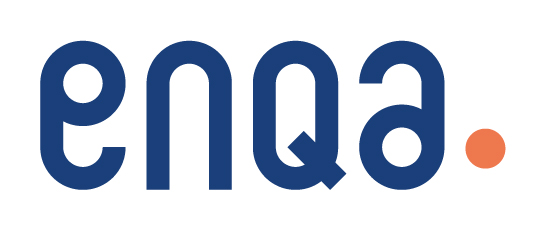 The idea of the creation of an association originates from the European Pilot Project for Evaluating Quality in Higher Education (1994-95) which demonstrated the value of sharing and developing experience in the area of quality assurance.
The idea of the creation of an association originates from the European Pilot Project for Evaluating Quality in Higher Education (1994-95) which demonstrated the value of sharing and developing experience in the area of quality assurance.
Following the Recommendation of the Council (98/561/EC of 24 September 1998) on European co-operation in quality assurance in higher education and the Bologna Declaration of 1999, ENQA was established in 2000 as the European Network for Quality Assurance in Higher Education to promote European co-operation in the field of quality assurance.
In 2004 the Network was transformed into the European Association for Quality Assurance in Higher Education (ENQA).
ENQA mission statement:
The mission of the European Association for Quality Assurance in Higher Education (ENQA) is to contribute significantly to the maintenance and enhancement of the quality of European higher education at a high level, and to act as a major driving force for the development of quality assurance across all the Bologna signatory countries.
The association of the European quality assurance agencies, ENQA contributes to this goal especially by promoting European co-operation in the field of quality assurance (QA) in higher education in order to develop and share good practice in QA and to foster the European dimension of QA.
ENQA’s purposes are essentially threefold:
- to represent its members at the European level and internationally, especially in political decision making processes and in co-operations with stakeholder organizations;
- to function as a think tank for developing further quality assurance processes and systems in the EHEA;
- to function as a communication platform for sharing and disseminating information and expertise in quality assurance among members and towards stakeholders.
- to review and advise on the needs of European Ministers of Education, national and regional public authorities or other bodies working in the framework of the Bologna process;
- to promote the development of quality assurance procedures in the field of transnational European higher education;
- to contribute to the development and implementation of effective quality assurance systems and accreditation agencies;
- to coordinate research expert systems for quality assurance and accreditation agencies;
- to maintain and develop cooperation with other relevant European institutions and stakeholders;
- to contribute to the creation of a European Higher Education field;
- to make a dialog with other nets and regions
ENQA membership:
The European Association for Quality Assurance in Higher Education ENQA is open to cooperation with quality assurance agencies of the countries that signed the Bologna Declaration. ENQA has two types of membership: full membership and the status of the candidate. In addition, the Association may assign associated or affiliated status to quality assurance agencies.
Currently there 49 agencies from 28 countries who are full members of ENQA, and 53 organizations from 25 countries have an affiliate status.
World Federation for Medical Education WFME

World Federation for Medical Education WFME is an international organization whose mission is to enhance the quality of medical education worldwide through the introduction of high scientific and ethical standards. WFME includes 6 Regional Associations of medical education. International activities to improve the quality of medical education began with the International Program for the Modernization of Medical Education since 1984.
WFME works closely with the World Health Organization (WHO), the World Medical Association (WMA), UNESCO and UN specialised agencies, Associations of medical education and medical schools in Europe and other important organizations of different countries, among them the Independent Agency for Accreditation and RatingIAAR have been included this year.
On December 14, 2017 Independent Agency for Accreditation and Rating, recognised by many world associations on education quality assurance, has been awarded yet another high status of the WFME recognition, which continues to confirm the compliance of the IAAR activities with high international standards.
IAAR is the first organization from the CIS countries recognised by the World Federation for Medical Education, which gives the right to conduct international accreditation of medical organisations and programmes.
Passing accreditation in the IAAR by medical education organisations in accordance with international standards contributes to the achievement of the national goal - increasing the competitiveness of the graduates and the export potential growth of the educational sector.
Proceed to the WFME web siteConfirmation Document WFME (Republic of Kazakhstan)Confirmation Document WFME (Russian Federation)Confirmation Document WFME (Republic of Moldova)Confirmation Document WFME (Republic of Tajikistan)
Confirmation Document WFME (Kyrgyz Republic)Confirmation Document WFME (Ukraine) Confirmation Document WFME (Romania) Confirmation Document WFME (Republic of Belarus) Confirmation Document WFME (Republic of Uzbekistan) Confirmation Document WFME (Republic of Azerbaijan) Confirmation Document WFME (State of Palestine) Confirmation Document WFME (Dominica) Confirmation Document WFME (Somalia) Confirmation Document WFME (Belize) Confirmation Document WFME (Barbados)
The Asia-Pacific Quality Network APQN
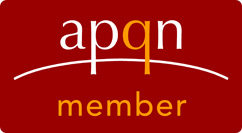
APQN was created in 2003 with the support of the World Bank and UNESCO in response to the needs of quality assurance agencies in the field of higher education located in a region that is home to more than half of the world's population. APQN operates as a regional network of the International Network for Quality Assurance Agencies in Higher Education (INQAAHE).
APQN mission statement:
‘To enhance the quality of higher education in Asia and the Pacific region through strengthening the work of quality assurance agencies and extending the cooperation between them.’
APQN purposes:
- to promote the dissemination of good practice to maintain and improve the quality of higher education in the Asia-Pacific region;
- to promote research activities in the field of quality management of higher education and its effective use in order to improve the quality of higher education in the region;
- to provide information and assistance to new agencies to ensure the quality of education in the region
- to promote cooperation between agencies to ensure the quality of education, as well as the mutual recognition of judgments and estimates;
- to assist members of APQN in determining the standards of institutions activities within national systems;
- to promote international recognition of qualifications in the region;
- to assist in the development and use of credit transfers schemes, to facilitate the mobility of students both within and beyond national borders;
- to inform APQN members about dubious accrediting organizations;
- to represent the region and promote its interests, for example, regarding other networks and international organizations.
APQN membership:
APQN has four levels of membership: Full Member, Intermediate Member, Associate Member and Institutional Member. Certain criteria need to be met at each level of membership. APQN also accepts Observers. Only full members and intermediate members are eligible to participate in the governing bodies of the association. Associates and institutional members may participate in the Annual General Meeting and other meetings of the General Council but they do not have voting rights.
At present times, the APQN network consists of 149 organizations: 34 full members, 19 agencies with interim status, 10 associate members and 86 organizations have the status of institutional members of the network. Four organizations are observers: UK, Germany, Kuwait, Thailand.
The full list of APQN network with the names of organizations, countries, type of membership, Internet sites and other contact information posted on the website of APQN network:
The International Network for Quality Assurance Agencies in Higher Education INQAAHE
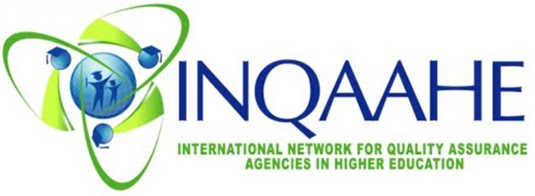
INQAAHE was established in 1991 and currently has more than 270 members. The network was the first, largest and recognized organization in the world dealing with the theory and practice in the field of assessing the quality of higher education in the world.
INQAAHE mission statement:
Promoting quality assurance to the agencies by the exchange of information and experience; development of theoretical and practical foundations of the profession; development and promotion of standards of professional practice in quality assurance; encouraging and assisting in the continual improvement of agencies and members of INQAAHE, including professional development and capacity-building for universities, students and society.
INQAAHE purposes:
- collect and share information on the status and new developments in the theory and practice of assessment, improvement and maintenance of quality of higher education;
- promote the dissemination of good practices for maintaining and improving quality of higher education;
- promote research works in the field of quality management systems of higher education and their effectiveness;
- provide consultancy and expertise to support the development of the newly established accreditation agencies; contribute to the establishment and development of relations between the accreditation agencies, particularly those that operate across national borders;
- support network members in determining the standards of universities across national borders;
- promote greater awareness in the international recognition of qualifications;
- promote the development and use of credit units offsetting schemes to enhance the mobility of students within the country and abroad;
- warn the members of the network of questionable accrediting organizations and accreditation practices.
INQAAHE membership:
Membership in the network INQAAHE can be of three types: full, associate and affiliate.
The full members are those organizations which responsible for assessing the quality of universities and educational programs (accreditation agencies; agencies that conduct evaluation and similar organizations, bodies involved in recognition of the work of accrediting agencies). Associate members - organizations, showed great interest in the evaluation issues, accreditation and quality assurance in higher education, but not involved in quality assurance procedures of universities or programs. Affiliated members - are individuals interested in the assessment issues, accreditation and quality assurance in higher education. All members of the network can be elected to the governing bodies and participate in the work of the General Assembly, but only full members are entitled to vote on decisions.
Currently composed 280 members of INQAAHE: 178 - full, 88 - associate and 14 - affiliated.
The full list of INQAAHE network with the names of organizations, Internet sites and other information posted on the website:
Proceed to the INQAAHE web site Confirmation Document INQAAHE
International Observatory on Academic Ranking and Excellence IREG
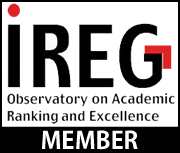
IREG was formed as a joint initiative of the European Centre for Higher Education (UNESCO-CEPES) and a group of international experts on ranking studying the quality of academic ranking. IREG was founded in 2009 at the suggestion of the group of international experts.
Mission IREG:
Improving the quality of international and national ranking of higher education institutions.
Objectives IREG:
- improving the standards and practices in accordance with the Berlin Principles on Ranking of Higher education institutions;
- Implementation of analysis of how ranking impacts on access to higher education and employment of graduates;
- study of the impact of ranking on institutions of higher education;
- development of public awareness and understanding of academic work.
IREG membership:
Currently there are more than 40 organizations as part of IREG representing the UK, Germany, Denmark, Spain, China, Kazakhstan, Lithuania, Poland, Romania, Russia, the US, Taiwan, France and other countries. A complete list of IREG members and detailed information about the Group can be found at IREG
The US Council for Higher Education Accreditation (CHEA) International Quality Group (CIQG)
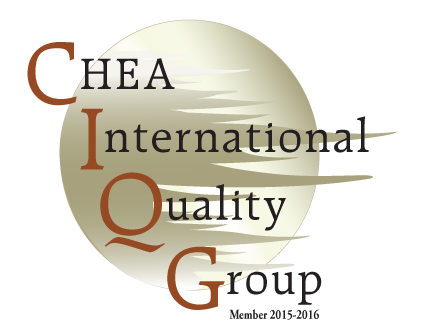
An International Quality Group (CIQG) was created in 2012. For the participation in the group there were invited world leading accreditation agencies. Since September 2012 the IAAR is a member of the International Quality Group of the Council for Higher Education Accreditation in the United States (CHEA).
CHEA - the oldest network of accrediting agencies in the world. It cooperates with 3,000 universities and colleges, as well as 60 leading organizations around the world involved in an independent assessment of the quality of education.
CHEA is a world leader and a national leader in the US on an independent quality assessment and on provision of the guarantees of quality of education.
Learn more about our membership
Association of Quality Assurance Agencies of the Islamic World (IQA)
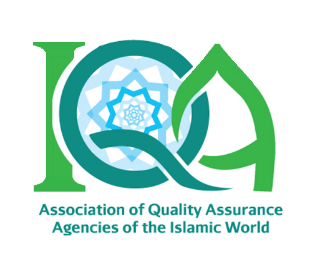
IQA was founded in May 4, 2011 as an association of quality assurance agencies of education and public authorities, responsible for the quality of higher education in the Islamic world.
The purpose of IQA is to stimulate and improve the quality of higher education in the Islamic world.
IQA has the following objectives:
- enhance the capacity of quality assurance agencies of education in the Islamic world;
- promotecooperation and exchange of best practices and expertise between quality assurance agencies in the Islamic world;
- encourage cooperation with regional and international organizations of the education quality assurance;
IQA involves two categories of membership: full and associate. As full members of IQA can be government agencies of external quality assurance or public authorities responsible for external quality assurance of higher education in the Islamic world, or other organizations approved by the Executive Committee. Associate members of IQA can be interested organizations from Islamic countries that are actively involved in the evaluation process, accreditation, maintain or enhance the quality of higher education approved by the Executive Committee.
Currently, there are 37 members in IQA: 16 - full, 21 - associated.
IAAR is a full member of the IQA. More you can find on
CEENQA - Central and Eastern European Network of Quality Assurance Agencies in Higher Education
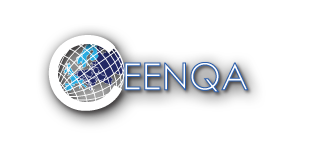
The Network of Central and Eastern European Quality Assurance Agencies in Higher Education was founded on October 13, 2001 in Krakow, Poland, after a first meeting in Budapest, Hungary the year before. CEENQA was legally registered in Düsseldorf, Germany on July 4, 2011.
The CEE Network is a non-governmental and non-profit organization.
According to its Statutes, “The purpose of the Association is the cooperation between the member organizations in the development and harmonization of their activities in the field of quality assurance and quality improvement in higher education in Central and Eastern Europe, thereby making a contribution towards the development and implementation of the European Higher Education Area”.
European Quality Assurance Register for Higher Education EQAR
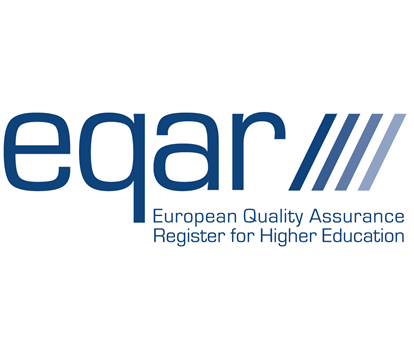
On June 20, 2017, Independent Agency for Accreditation and Rating IAAR by the decision of the Register Committee was included in the European Quality Assurance Register for Higher Education EQAR.
Since 2005 the EQAR has been a key organization, ensuring the further development of the European Higher Education Area by increasing the transparency of quality assurance and providing information on agencies operating in European countries. Entering the EQAR is the highest achievement and recognition for accreditation bodies.
Today, the European Quality Assurance Register for Higher Education includes 48 agencies from 27 countries. Kazakhstan became the 23rd country from 48 countries participating in the Bologna Process.
Inclusion of the IAAR into the EQAR was one of the strategic tasks of our agency and to obtain this status, IAAR has undergone a multi-stage evaluation of its activities, which is conducted by leading foreign experts.
Obtaining the status of a recognized agency is a confirmation of the compliance of IAAR activities with high international standards and evidence of the trust of such an authoritative organization.
Information on accreditation agencies included in the European Quality Assurance Register for Higher Education EQAR and the official decision on IAAR registration are available at the following link
Asia-Pacific Quality Register APQR

Independent Agency for Accreditation and Rating (IAAR) passed an independent assessment for inclusion in the Asia-Pacific Quality Register (APQR)
In June 2020, Independent Agency for Accreditation and Rating (IAAR) by decision of the Board of the Asia-Pacific Quality Register (APQR) was included in Asia-Pacific Quality Register (APQR) for 5 years.
The AGM of the Asia Pacific Quality Network APQN has endorsed a proposal for the establishment of the Asia-Pacific Quality Register APQR in 2012. APQR is a register of external quality assurance agencies in the Asia-Pacific region. An independent external review by peers is the backbone of the APQR.
Purpose of AQPR:
- Serve as a quality hallmark and qualification to accredit HEIs/programmes
- Provide a basis for mutual recognition of cross‐border operations of Quality Assurance Agencies
- Offer a reference to global stakeholders on trustworthy external Quality Assurance Agencies in in the Asia-Pacific Region
The Quality Assurance Agencies who have been registered and accepted onto APQR by the on-site review panel can accredit international HEIs/programmes in guidance/cooperation along with APQN.
International Vocational Education and Training Association – IVETA
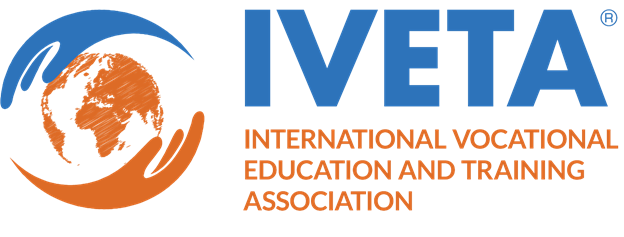 IVETA (International Vocational Education and Training Association) is a network of vocational educators. Our network includes vocational skills training organisations, business and industrial firms, and individuals and groups interested or involved in vocational education and training worldwide.
IVETA (International Vocational Education and Training Association) is a network of vocational educators. Our network includes vocational skills training organisations, business and industrial firms, and individuals and groups interested or involved in vocational education and training worldwide.
IVETA is dedicated to the advancement and improvement of high-quality vocational education and training throughout the world.
Mission
IVETA is an international network of vocational educators and service providers dedicated to the advancement and improvement of high-quality vocational education and training wherever it exists and wherever it is needed.
Values
- Promote excellence and quality in vocational education and training.
- Provide support and services to members across the global TVET community.
- Actively advocate on behalf of members and create a strong and united voice on behalf of the TVET community.
IVETA Membership
Membership includes practitioners, researchers and students in vocational education and training, as well as institutions, organizations and companies active in human resource development.
International Society for Quality in Health Care – ISQua
 ISQua (International Society for Quality in Health Care) is a member-based, non-profit organization aimed to support people in their efforts to enhance healthcare systems and practices, fostering a culture of continuous improvement. For over 30 years, ISQua has worked globally to enhance the safety and quality of healthcare through education, knowledge sharing, and external evaluations ISQua has a vast network currently cooperating with professionals across over 70 countries and six continents.
ISQua (International Society for Quality in Health Care) is a member-based, non-profit organization aimed to support people in their efforts to enhance healthcare systems and practices, fostering a culture of continuous improvement. For over 30 years, ISQua has worked globally to enhance the safety and quality of healthcare through education, knowledge sharing, and external evaluations ISQua has a vast network currently cooperating with professionals across over 70 countries and six continents.
ISQua offers its members three core values that shape their engagement with the community:
- Knowledge: Members gain access to valuable insights from international experts, equipping them with the tools to initiate and implement improvements within their own professional contexts.
- Network: ISQua provides opportunities to expand professional networks, connect with peers, and establish meaningful relationships within a global community of healthcare professionals.
- Voice: Members are encouraged to share their ideas, opinions, and research, and to be recognized for their contributions to the ongoing dialogue around healthcare quality improvement.
To support these values, ISQua offers a range of services, including Community Membership, Educational Programs, External Evaluation services, and Communities of Practice.
ISQua offers an opportunity to gain institutional membership. Institutional membership signifies that organizations are part of a global network of institutional members committed to actively improve the quality and safety of healthcare for all.
In 2025, IAAR has granted institutional membership in ISQua.
Proceed to the ISQua web site Confirmation Document ISQua